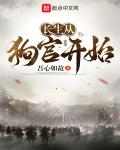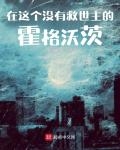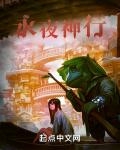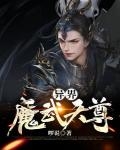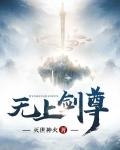Chapter 168: A benevolent king, a ray of light in troubled times
In the book of Qi Ling.
The words slowly emerged.
Several options emerged.
Choice 1: [That year, you met the Han general, and you talked with him while shaking your hands and laughing. You drank wine and talked about the past. Your talent was appreciated by the general, and he wanted to give you a carriage and horses, and make you a high-ranking official to supervise and protect you, and invite you to go south. However, you hesitated again and again, and finally gave up this great opportunity, because you saw through the general's nature. If you follow him, you can only become his pawn and cannot realize your ambitions.]
Choice 2: [You are the son of the Di people, but you have loved Han culture since childhood. Years of cultural influence have allowed you to get rid of the Rongdi way of thinking. You gradually think about how to stop this chaotic world that never ends. After ascending to the throne, you are loyal to all your subjects. You firmly believe that if you treat others with sincerity, you will be treated with sincerity. But facts prove that you are wrong.]
Choice 3: [You are the eldest son of a general. You have been very brave since childhood. When you grew up, you participated in suppressing the unrest between the Ding army and the rebels. Then you moved to Jiangdong and made friends with the local nobles and celebrities. Gradually, your reputation spread. Everyone said that you were very brave, like a king in the world...]
Choice 4: [You were born into a declining landlord family. Your father died early. When you grew up, you joined the peasant uprising and followed the leader of the rebel army to capture Chang'an, Luoyang and other places one after another, and dominated the world. However, you realized that the rebel army was just a pile of scattered sand, with a low morale and difficulty in accomplishing great things. So you surrendered to the court and became the general of the Left Jinwu Guard. After that, you made many military achievements and became more powerful. You became the largest military governor. Your next step is to do what the Sima family did...]
In the first simulation after becoming a Grandmaster, there were not many options, still only four.
On second thought, it's normal.
After all, the reason why others have so many options is because the contract is only for clones. After becoming a master, if they simulate it again, they will definitely be favored by many heroes.
But Su Che is different. The number of heroic spirits he has contracted is a little too many.
Even if he broke through to the Grandmaster level.
There are still only four people who choose him.
Su Che looked at the four options carefully.
The first choice, to shock everyone with a conversation while scratching one's head, or to talk about the past while drinking wine?
Such a flirty scene.
It should be the fierce guy whose name contains the word "fierce".
Wang Meng!
This fellow was a man of both civil and military talents. Most of the powerful men of that time had such characteristics: they were both civil and military, and were the most important talents of the country.
He can be compared to two ancient men, one is Jiang Taigong and the other is Zhuge Liang.
but.
He served the Di regime during the period of the Five Barbarians and Sixteen Kingdoms - the Former Qin, rather than the legitimate dynasty, the Eastern Jin.
The reason is very simple. Wang Meng came from a poor family and had no family foundation, while the Eastern Jin Dynasty was dominated by the aristocratic families.
A talented person from a humble family like Wang Meng could only rely on aristocratic families like the Huan, Wang, Xie, and Sima families in the Eastern Jin Dynasty, relying on these groups' rewards and promotions to become their minions.
It is simply impossible to promote one's own political ideas, realize one's ambitions and achieve one's dreams.
The general described in the selection is none other than General Huan Wen.
Wang Meng was appreciated by Huan Wen for his talent, but Wang Meng hesitated again and again and finally rejected this bright future and the wealth and glory that was within his reach because Huan Wen was a man who kept enemies in his home and put the interests of his aristocratic family as his top priority.
In addition, Wang Meng’s most famous strategy is the "Golden Knife Strategy", which is even known as the greatest conspiracy of all time.
However, his monarch was a sage. Although he was a Rongdi, he was completely brainwashed by Han Confucian culture and did not know that the knowledge needed to be used dialectically.
Even though the Golden Knife Plan had been successfully implemented, the monarch generously forgave the other party. He believed that if he treated others with sincerity, he would be treated with sincerity in return. However, such a naive idea was obviously wrong, very wrong.
However, if the monarch was not such a monarch, it would be impossible to trust Wang Meng unconditionally.
Wang Meng continued to rise in status, from a commoner to one of the Three Dukes, with power over the world, in just five years.
In addition, in order to strengthen the imperial power and centralize power, Wang Meng offended countless powerful people.
But his monarch chose to trust Wang Meng unconditionally, and even executed the powerful people who caused trouble to boost Wang Meng's reputation.
Such a monarch is what every subject dreams of.
The only pity is that this monarch not only treats Wang Meng in this way, but also treats other talents in the same way...
Su Che shook his head and looked at the second option again.
He couldn't help but be stunned.
Um??
Is this ok?
Is this intentional?
The second option is the monarch of the first option, Wang Meng, Fu Jian!
Although this guy is a Rongdi, he is a ray of light in troubled times.
Under his rule, the people lived and worked in peace and contentment, and it was the only "well-governed" era in this period.
but.
Although he was a good monarch, he was not a good general.
When Wang Meng died, he personally led an expedition to the Eastern Jin Dynasty, which directly resulted in three famous idioms: "throwing a whip to stop the flow of the river", "seeing enemies everywhere", and "the wind and the sound of deer cries".
These idioms vividly describe Fu Jian's heroism before the Battle of Feishui, his panic during the battle, and his embarrassment after the defeat, directly defining him as a rash, cowardly, and mediocre person.
But in fact, in the extremely chaotic and tangled history of the Five Barbarians and Sixteen Kingdoms, as well as the Wei, Jin, Southern and Northern Dynasties, Fu Jian can be said to be a very rare wise monarch.
Even Su Che still knows very little about this era.
However, he still knew a few things about the celebrities of that period.
For example, Liu Yu, Wang Meng, Fu Jian...
The reason why Fu Jian failed was because he was too kind and righteous.
He firmly believed in Confucian moral governance, constantly pursued the perfection of his own morality, and permeated the concepts of loyalty, filial piety, grace and trustworthiness into the art of governing the country with "benevolence, righteousness and moral governance".
This is true even to one's enemies.
Whether it is treating the surrenderers or the defeated.
They were all pardoned and given official titles, such as the Murong family of the Former Yan and the Yao family of the Qiang people who surrendered.
Fu Jian treated them all equally and valued them highly.
Even though Wang Meng repeatedly advised him against it, Fu Jian remained unmoved and insisted on putting trust and integrity first. However, these actions were tantamount to playing with fire and getting burned.
The villains feared power but not virtue. Fu Jian's indiscriminate leniency towards these people not only failed to win their loyalty, but after the Battle of Feishui, these people immediately rose up in rebellion.
To a certain extent, this monarch was fooled by the teachings of Confucianism.
As a Hu, he only knew Confucianism, but he did not know that as an emperor, he needed to "use both Confucianism and Legalism, and mix them with the way of hegemony and kingship."
If it were a prosperous era, such a monarch would most likely be considered an enlightened and wise ruler.
But unfortunately, he lived in the most chaotic era . In such an era, it was impossible to achieve great things with such a way of governing the country...
In the most chaotic and bloody era, a most wise and benevolent monarch appeared.
In a sense, this is a joke played by history.
Then.
Su Che looked at the third option.
The description says that it is like the Overlord is still alive, Overlord of Jiangdong? Who else could it be if not Sun Ce?
This one is interesting too.
If Sun Ce were still alive, the Eastern Wu would never have been the so-called "rats of Jiangdong". It's a pity that he died young at the age of only 26.
If Sun Ce had not died, perhaps the historical story of the Three Kingdoms would have developed in another direction, and the final outcome of the world might have been different.
The cause of his death has always been a mystery.
Some people say that he was assassinated because he killed Yu Ji.
Some people also say that he is too popular and that the tree that stands out in the forest will be destroyed by the wind.
But no matter what the reason was, Sun Ce's death can be said to be very regrettable.
So here comes the question.
If Su Che imitated Sun Ce, would he also die at the age of 26?
If he died immediately, there would be very little Su Che could do!
Su Che shook his head and looked at the last option again.
The fourth option...
This brother is a fierce man who started out as a rebel.
He first followed the leader of the rebel army to revolt, but when he saw that the rebel army had no future and was simply a group of loose sand, he decisively defected to the imperial court and became a general of the Jinwu Guard. After that, he made many military achievements and became a military governor, a local tyrant, and finally the emperor.
This person should be Zhu Wen, who followed Huang Chao in the uprising, and later infiltrated the Jiedushi's forces. Afterwards, he held Emperor Zhaozong of Tang hostage, was promoted to King of Liang, killed a large number of eunuchs, and seized all the power!
After that, he indiscriminately killed court officials headed by Pei Shu at Baima Posthouse in Huazhou, causing the "Baima Posthouse Disaster."
Finally, Zhu Wen forced Emperor Zhaozong of Tang to move the capital to Luoyang, and soon killed him, and then made Li Yu the emperor.
Four years later, Zhu Wen forced Emperor Ai of Tang to abdicate and established a new dynasty, named Liang, which is known in history as Later Liang.
This man was a ruthless person, but his ending was not so good. He was eventually killed by his own son Zhu Yougui.
Zhu Yougui was also killed by his subordinates. It can be said that it was the law of nature and retribution.
Su Che looked at these four choices and couldn't help but frown.
A closer look reveals that it is all chaos...
The first and second choices were the extremely chaotic Five Barbarians and Sixteen Kingdoms.
The third is the chaotic Three Kingdoms.
The fourth is the chaotic Five Dynasties and Ten Kingdoms period.
Su Che looked at these options carefully and couldn't help but hesitate.
How to choose?
First, although Wang Meng is a powerful man, what he can do alone is ultimately limited. Even Su Che does not have the confidence to clean up the world in this chaotic era.
After all, the monarch is a saint in troubled times, so what if the golden knife plan succeeded or failed?
So, the first one is ruled out directly.
Because the second one was his monarch Fu Jian.
Instead of choosing the first one, you might as well choose the second one directly.
After eliminating the first one, Su Che only needs to choose from the remaining three.
The Little Overlord Sun Ce had a very short life and it was very likely that he had an accident and died instantly, so this one can also be ruled out.
In other words, either choose the second one or the fourth one.
In this way.
The choice becomes simple.
The former was a wise and enlightened monarch, but his great cause was not accomplished.
Although he was a Di people, he believed in Confucianism, advocated benevolence, righteousness and morality, and even paid a price for it.
But the latter was a traitor, and he actually made him emperor, becoming the founding emperor of Liang State.
From another perspective, the latter is the winner.
So even if it was a simulation, Su Che was only taking one step further on top of this success.
so……
Su Che thought about it again and again, and finally decided to choose the second option.
Fu Jian.
He is an idealist.
Fu Jian's goal was to achieve the unification of the world, but he believed that this should be achieved through moralization.
What we ultimately want to establish should be a moral world with a complete form.
He wanted to rely on moral governance to lead the country onto the path where the emperor is the father and the people are the sons, completely eliminate racial and bloodline barriers, and achieve true and moral rule over the world.
To this end, he has been practicing his own approach.
After destroying the Former Yan, he granted titles to the upper class of the Former Yan. The king of the fallen country, Murong, was made Shangshu, Murong Ping was made prefect of Fanyang, and the princes and nobles of the Former Yan all became governors of the border counties of the Former Qin.
As a result, the Qin army collapsed in the Battle of Feishui.
The Former Qin Empire collapsed from then on.
After struggling for two years, Fu Jian was hanged to death by Yao Chang, the Qiang leader whom Fu Jian had rescued from the execution ground when he was still a prince.
Murong Chui, who was taken in by Fu Jian in times of crisis, took over the Guandong area and killed his son Fu Pi.
This broad-minded saintly monarch did not have a good ending in the end.
When Su Che chose Fu Jian.
The other options slowly disappeared.
A line of words appeared in front of him.
【Daqin Longxing Huamu Ancient Saint】
The meaning of this passage is that the Qin Dynasty is following the behavior of ancient saints in educating its people.
Su Che could see such a scene: after Fu Jian was on the verge of defeat, the army of Murong family was about to attack, and he, the monarch, was about to die, but the people still spontaneously helped this poor monarch.
Su Che seemed to be able to see that after seeing those people, Fu Jian couldn't help but let out a long sigh.
This sigh expressed endless sadness.
Ultimately, he failed to accomplish his great cause, and ultimately he was let down by his own people.
Then.
It all disappeared.
On the Book of Spirit Contract, the words at the beginning slowly emerged.
[Your father is Fu Hong, the founder of the Former Qin Dynasty, and your uncle is Fu Jian, the founding monarch of the Former Qin Dynasty.]
【Lüeyang Linwei】(Southeast of Qin'an, Gansu today. The Di people have now been assimilated into the Han nationality.)
【You were born.】
[Your ancestors were chieftains of the Western Rong people. You are called "Rongdi" by the Han people in the Central Plains, and you are a despised Hu people.]
[You have been very smart since you were young. When you were seven years old, you knew how to help your friends around you. Your words and deeds were like those of an adult, so you were loved by your grandfather Fu Hong.]
[When you were eight years old, you gradually learned to think independently. You were eager for more knowledge, and then asked your grandfather Fu Hong to hire a teacher.]
[Fu Hong looked at you in surprise and said: "Our people have always only known how to drink and eat meat. Now you want to study, that's great." So he happily agreed.]
[In the days that followed, you devoted yourself to studying classics and history, and from a young age you were familiar with the Four Books and Five Classics, as well as various ancient books.]
[In those ancient classics, you saw the world of great harmony described by Confucius, and you yearned for it very much.]
[It was at this time that you set a goal to one day create the world of great harmony that the saints talked about! ]
[It is an ideal society where everyone is for the public, all people in the world are brothers, and all ethnic groups are as close as one family and as close as brothers.]
[Whether it is the Di people, the Xiongnu, Xianbei, Jie, Qiang, or the Han people in the Central Plains, they should all be as close as one family.]
[In this way, there will be no more disputes in the world, and the world will move towards complete harmony, with everyone loving and helping each other, every family living and working in peace and contentment, without war or chaos, and without thieves or bandits.]
[You told your father about your ideal, but he scolded you harshly.]
[He scolded: "Have you become stupid from studying so much? The Hu people are wolves and the Han people are sheep. How can wolves and sheep live in peace?!"]
【You fell silent.】
[The Hu people are wolves, and the Han people are sheep. This has been the source of the endless disputes since ancient times, as if it is the universal truth of the world.]
[But can this endless war and unrest really never be completely stopped? ]
[You don’t want to believe…]
[These things always need someone to do them. If no one does them, then I will do them! ]
[As you grow older, your father passes away, and you inherit his title of King of the East Sea.]
【It was during the Yongjia Rebellion. 】
[The Xiongnu army, led by Liu Yuan's son Liu Congfa, defeated the defenders of Luoyang, the capital of the Western Jin Dynasty, captured Luoyang, and began to plunder and kill, capturing Emperor Huai of Jin and other princes and ministers. This directly led to the demise of the Western Jin Dynasty.]
[The Yongjia Rebellion caused the north to completely collapse, and the country was once again divided.]
[The north entered the endless warring Five Barbarians and Sixteen Kingdoms; while the Eastern Jin regime was established in the south. ]
[The whole world was in chaos, conflicts between the major ethnic groups were becoming increasingly serious, and the conquests by the northern countries left the land of China in ruins.]
[Your determination since childhood to 'treat the world as one family and treat the barbarians as your own children' has become even stronger now! ]
[You swear to eliminate the hatred among different ethnic groups and let the people live a happy life, whether they are Han or Hu people.]
[This year, Fu Jian died of illness, and his son Fu Sheng succeeded to the throne.]
【Fu Sheng was a rare tyrant in the world. He regarded killing as a child's play. Whenever he met with ministers, he would have his attendants string arrows, unsheath knives, and place iron pliers and hacksaws in front of him. He would kill anyone he didn't like. If any minister made a suggestion, it would be considered slander and he would be killed; if someone said something flattering, it would be considered flattery and he would also be killed.】
[Fu Sheng killed all the regents left by his father, chiseled a hole through the skull of his uncle who had advised him, and frightened his biological mother to death.]
[You are deeply worried about this situation, and you are trying to find a way to save the country. You are looking for talents everywhere.]
【Then, you met the fierce man destined by the people, Wang Meng.】
[You and Wang Meng hit it off right away. Although you are a Di people, you are familiar with Confucian classics. You have discussed the Five Classics with many great Confucian scholars. Your profound knowledge and profound connotations make it difficult for others to respond.]
[You and Wang Meng had a great conversation, and almost all of your opinions were surprisingly consistent, just like Liu Bei meeting Zhuge Liang. So, Wang Meng finally decided to enter the official career, and stayed by your side from then on.]
[Under Wang Meng's advice and planning, you took his place and ascended to the throne, but you thought that your virtues were insufficient and you were only willing to be called the Heavenly King of Qin.]
[Then, facing the current chaotic world, you decided...]
1: Rule the world with benevolence and virtue.
Second, rule the world by law.
Third, indulge in pleasure.
4. Intervene personally.

